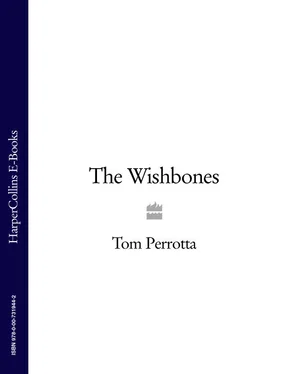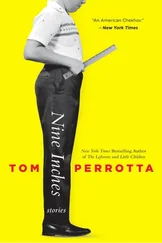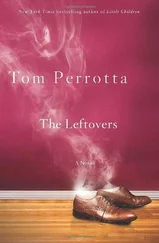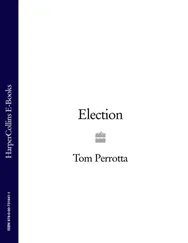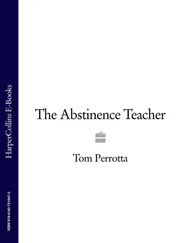The Sundown burst into a hectic flurry of motion, with people scattering in several different directions at once, shouting for a telephone. Dave and Ian rushed across the lounge to check on Phil.
“Is there a doctor in the house?” Mel inquired. “How about a nurse?”
By the time Dave reached the edge of stage #2, Joey had already emerged from behind his drum kit, rolled Phil onto his back, and begun loosening the buttons of his ruffled shirt. Phil submitted patiently to these ministrations, his awestruck face turned to the ceiling. Even then, from a distance of about ten feet, Dave could see that he was gone.
“Grampa,” Joey implored him. “Grampa, please.”
“Is there a doctor in the house?” Mel repeated. “Does anyone know CPR?”
Dave hunched his shoulders and took a step back from the stage, trying to look as inconspicuous as possible. He had taken a CPR class in high school, but all he remembered was that Ralph Vergiliak had pretended to hump the dummy, earning himself a week's detention.
“Grampa.” Joey's voice was stern now, as though he were scolding the dead man for his lack of cooperation. He grabbed hold of Phil's shoulders and gave them a hard shake. “Come on now, Grampa.”
From the corner of his eye, Dave caught a brilliant flash of red. Before he understood what he was looking at, Alan Zelack had rushed across the stage, shoved Joey out of the way, and begun CPR. The whole sequence came back to Dave as he watched—the head tilt, the sweep of the mouth with one finger, the pinching off of the nostrils. The multiple chest compressions for every breath of air.
Zelack performed these actions with ostentatious competence, his blond hair flying, his red tuxedo shooting off tiny urgent flares. Dave's first, ungenerous impulse was to resent him for hogging the spotlight even in a tragedy, but that quickly passed, replaced by a grudging sense of respect. Like everyone else gathered around the stage, Zelack must have known that Phil was already dead. And yet he kept trying fiercely to bring him back, pumping his chest and filling his lungs, minute after interminable minute, until the ambulance finally arrived, and Phil's body became the property of professionals.
The Wishbones played their set anyway. They thought about canceling, but a couple had traveled all the way from Belvidere with their wedding consultant to check them out, and didn't want to have make the trek again. As a courtesy to them, Artie decided that the show must go on.
Dave felt a little weird about it, but as soon as he strummed the first chord of “Jailhouse Rock,” his reservations vanished. The music jolted him like an electric shock. It seemed to pass through his body on its way from the guitar to the amp, cleansing him, reminding him of how good it felt to be alive.
And it wasn't just Dave, either. Buzzy, who usually stood stone-faced and motionless while he played, was grinning with amazement, rocking from side to side as he plucked out the pulse of the song. Ian had abandoned his usual two-bit Elvis impersonation and was singing like he meant it, while Stan pounded the drums as though exorcising the demons from his life. Even Artie caught the wave. The solo jumped out of his horn, every note of it a fresh squawk of pleasure. It seemed to Dave that the song had never existed before, that they'd invented it on the spot.
Somehow they kept the momentum for ten more tunes, finding something real in even the tiredest old standards. When they had run the gamut of their repertoire, from disco to pop, from polka to R&B, Ian surprised them all by breaking into one last song on his piano, something the Wishbones had never done before.
“This is for Phil,” he said. “Rest in peace, brother.”
The chords were simple, and Dave recognized them right away. He hadn't played “Knockin’ on Heaven's Door” since high school, back when he was lead guitarist in a band called Exit 36. Listening to the words now, colored as they were by death, Dave wondered what they could have meant to a bunch of teenagers in a suburban garage in 1979, kids whose idea of heaven was half an ounce of Colombian Gold and a girl with big tits to smoke it with.
But then he stopped wondering and gave himself up to the song. He closed his eyes and sang the chorus with every ounce of strength in his body. It was a blessing. Rest in peace, brother.
Julie answered the door in gray sweatpants and a baggy orange T-shirt. In her hand was a fat paperback with a tortilla chip marking the page.
“You lucked out,” she whispered, jerking her thumb in the direction of upstairs. “They went to bed.”
As he had on countless nights before this one, Dave followed her down the carpeted stairs to the rec room. As always, Julie left the door open, a somewhat discredited token of good faith to her parents. He pulled off his tuxedo jacket and draped it over the armrest of the brown-and-beige-plaid couch.
“Sorry I'm late. Things got messed up at the showcase.”
She shrugged. “It's probably better this way. They still haven't really forgiven you. Or me, for that matter.”
“You can't really blame them.”
Julie didn't respond one way or the other. She plopped down on the couch and stretched her legs out in front of her, resting them on the coffee table next to the bowl of chips that had supplied her bookmark. One leg of her sweatpants was pushed all the way up past her knee, while the other one extended down to her ankle. She put her hands behind her head and smiled up at him.
“So what happened at the showcase?”
Dave opened his mouth to tell her about Phil Hart, but something went haywire in his brain. He looked at her and thought how pretty she was, smiling up at him, rubbing her heel over her bare shin, waiting for his answer. He thought of how much they'd been through together, and how crazy he was to imagine that he would ever want more from life than she'd be able to give him. He spoke without intending to, and didn't really gauge the significance of his words until it was too late, until she was already off the couch and in his arms.
“Let's get married,” is what he'd told her.
He woke the next morningwith a consciousness—it felt something like a hangover—of having made a terrible mistake. He couldn't figure out how it had happened, how he'd allowed years of resolve to crumble in a single moment of weakness. In the half darkness of his bedroom, he fantasized about calling and rescinding the offer.
“I'm not ready,” he'd explain. “I don't have a steady job or any money in the bank. You deserve someone more reliable, a husband you can count on.” He figured he'd leave out the part about not believing himself capable of a lifetime of sexual fidelity.
“So why'd you do it?” she'd ask, more curious than upset. “Why'd you propose if you didn't mean it?”
“I—I really don't know. I was just in a weird mood or something.” He could hear the lameness of his excuse. “I love you, but I'm just not prepared for this.”
The imaginary Julie listened carefully, her brow knitting into wavy lines of concentration. “I understand, Dave. It would be crazy for us to get married right now. But I do want to continue having sex with you.” Her voice dipped into a more sultry register. “In fact, I want to have sex with you right now.”
He threw off the covers and forced himself to get out of bed. This was no time to get sidetracked. He really did have to figure out a way to tell her that he hadn't actually meant to pop the question (though it wasn't even a question, now that he thought about it), but had somehow taken leave of his senses as a result of Phil's sudden death and that pushed-up leg of her sweatpants …
Читать дальше
